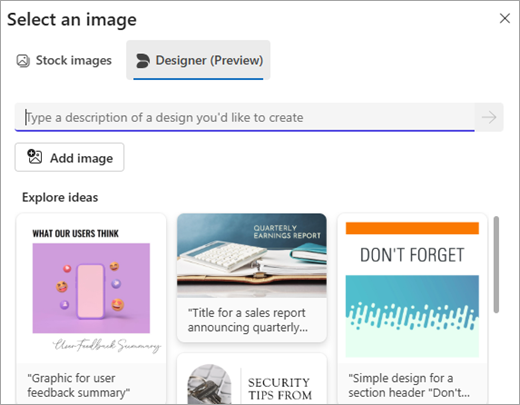Microsoft Reading Coach: A Game-Changer for Literacy Support in Schools
Discover how Microsoft Reading Coach is transforming literacy support in schools through personalised AI-driven practice and instant feedback. This powerful tool helps students build confidence and reading fluency while providing teachers with valuable insights into individual progress. Learn how...

Understanding Reading Coach: Microsoft's AI-Powered Literacy Tool
Microsoft Reading Coach is a valuable literacy support tool available to educational institutions. Integrated within the Microsoft 365 Education suite, this adaptive learning resource provides individualised reading practice through an accessible interface that educators and learners can navigate with ease.
With support for 81 languages, Reading Coach serves diverse learning communities, including international students and those studying modern foreign languages. The platform's compatibility across multiple devices—from tablets to laptops—enables access through existing Microsoft 365 accounts. This versatility accommodates various technology approaches, supporting both personal and school-managed device arrangements.
Reading Coach's seamless integration with Microsoft's educational ecosystem enhances its practical value. Educational institutions can incorporate the tool alongside Teams and OneNote, creating a cohesive learning environment. This approach allows Reading Coach to complement existing literacy programmes whilst supporting established teaching methodologies.
Reading Coach's adaptive features support personalised learning approaches in contemporary education. The system provides learners with immediate feedback, adjusting to individual reading patterns and capabilities. Educators can access performance data to inform their teaching strategies efficiently. The automated progress tracking generates insights that may prove helpful during parent discussions and when planning additional learning support.
Reading Coach can be effectively integrated into broader literacy support strategies within educational settings. The tool facilitates both structured classroom activities and independent study sessions, offering flexibility in implementation. This adaptability is particularly beneficial for residential educational settings, where supervised evening study periods can incorporate structured reading practice to reinforce daytime learning.
Key Features and Implementation Benefits
A notable aspect of Reading Coach is its combination of artificial intelligence-generated content and the comprehensive ReadWorks library. This balanced approach provides access to both traditional educational materials and dynamically adapted texts that align with individual reading capabilities. The availability of both curated and personalised content helps support diverse learning preferences and abilities.
Key features of Reading Coach include:
- Personalised reading materials that respond to individual interests and proficiency levels
- Interactive pronunciation support with immediate constructive feedback
- Engagement tools designed to promote regular reading habits
- Monthly progress monitoring with detailed performance insights
From a technical perspective, Reading Coach operates efficiently within established Microsoft 365 environments. The platform's straightforward implementation requires minimal configuration, offering simplified deployment. In keeping with contemporary educational technology, the system aims to balance administrative efficiency with educational effectiveness.
Reading Coach offers several practical applications within existing literacy programmes, including:
- Structured reading activities integrated within language and literature lessons
- Independent study tasks with measurable reading objectives
- Additional language development support for international learners
- Targeted assistance during literacy support sessions
Reading Coach's automated differentiation features contribute to an inclusive learning environment. The system enables learners to engage with content appropriate to their abilities whilst maintaining their privacy and confidence. This self-adjusting approach supports teachers in managing diverse classroom needs, complementing their instructional strategies with tailored digital resources.
Looking Ahead: Making the Most of Reading Coach
Establishing Reading Coach within an educational setting benefits from methodical planning and preparation. Clear communication with stakeholders and a structured implementation approach can help ensure the tool's successful integration into existing literacy programmes.
A strategic approach to professional development can support effective implementation. Initial training might focus on literacy specialists and learning support staff before extending to other departments. The Microsoft Reading Coach training resources offer comprehensive guidance for professional development. Regular review meetings during implementation can facilitate knowledge sharing and address emerging questions within teaching teams.
Introducing students to Reading Coach can be effectively managed as part of standard technology orientation sessions. Developing concise guidance materials and establishing peer support networks within year groups can enhance adoption. Students who demonstrate proficiency with the platform may assist others, whilst providing constructive feedback to teaching staff about user experiences.
Evaluating Reading Coach's effectiveness benefits from a balanced assessment approach. While the platform's analytics provide reading progress metrics, combining these with qualitative feedback from students and teacher observations offers deeper insights. Establishing baseline measurements before implementation and conducting periodic assessments helps track development systematically. These combined insights can inform discussions about literacy support strategies with educational stakeholders.
When considering infrastructure requirements, it is advisable to assess network capacity for concurrent usage. Although Reading Coach generally operates with modest bandwidth demands, conducting pilot tests during periods of high network activity can help identify potential performance considerations. For institutions with diverse device environments, it may be beneficial to confirm system compatibility across various platforms.
Reading Coach illustrates the evolving role of adaptive learning tools in education. While its integration within the Microsoft ecosystem suggests potential for further development, particularly in AI-supported learning, the tool's value lies in supporting established teaching practices. Research suggests that educational technology is most effective when it enhances traditional literacy instruction rather than attempting to replace it.




